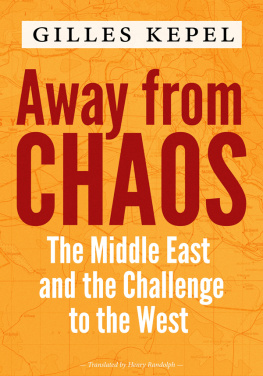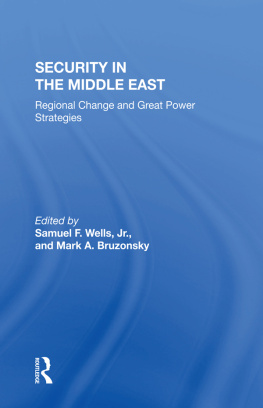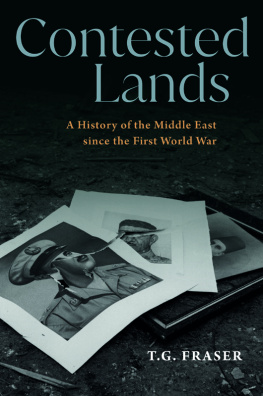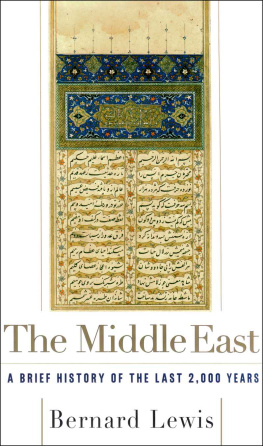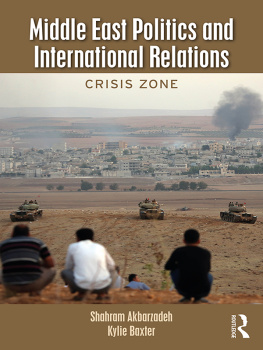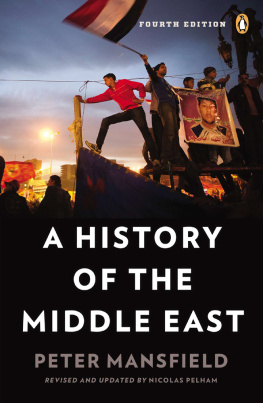Table of Contents
Away from Chaos
AWAY FROM CHAOS
The Middle East and the
Challenge to the West
GILLES KEPEL
Translated by Henry Randolph
COLUMBIA UNIVERSITY PRESSNEW YORK
Research and preparation for this book was made possible by a grant from the Levant Foundation.
Columbia University Press
Publishers Since 1893
New York Chichester, West Sussex
cup.columbia.edu
Copyright 2020 Gilles Kepel
All rights reserved
E-ISBN 978-0-231-55194-6
Library of Congress Cataloging-in-Publication Data
Names: Kepel, Gilles, author.
Title: Away from chaos : the Middle East and the challenge to the West / Gilles Kepel.
Description: New York : Columbia University Press, 2020. | Includes bibliographical references and index.
Identifiers: LCCN 2019048987 (print) | LCCN 2019048988 (ebook) | ISBN 9780231197021 (cloth) | ISBN 9780231551946 (ebook)
Subjects: LCSH: Middle EastPolitics and government1979- | Middle EastForeign relations1979 | Middle EastForeign relationsWestern countries. | Western countriesForeign relationsMiddle East.
Classification: LCC DS63.18 .K395 2020 (print) | LCC DS63.18 (ebook) | DDC 956.05dc23
LC record available at https://lccn.loc.gov/2019048987
LC ebook record available at https://lccn.loc.gov/2019048988
A Columbia University Press E-book.
CUP would be pleased to hear about your reading experience with this e-book at .
Cover design: Martin Hinze
To the memory of my father
Milan Kepel
(Prague, 1928 Paris, 2019)
Contents
FOUR DECADES BEFORE writing this book, I spent the year 19771978 in Syria on an Arab language scholarship at the French Institute in Damascus. For budding Arabists, it was the Open sesame that would admit us to the cave hiding the grammatical and phonetic secrets of the region that we loved. Careers in those days rarely started without a sojourn in Shm, as we called it among ourselves. This was the Semitic term both for the Levant and its traditional capital in the local dialect. In the orientation of Muslim geography, in which one faces Mecca from the west, Shm was to the left, or north, while Yemen, in the opposite direction, meant right or south.
Neither I nor my classmates could have imagined that, forty years later, this same Shm would become the rallying point in the French banlieues, or disadvantaged suburbs, for jihadists ready to join the Islamic State (also known as ISIS, ISIL, or Daesh) and massacre unbelievers. Initially, they concentrated on the Alawites, that esoteric sect to which Syrias president at the time, Hafez al-Assad, belonged (his son Bashar was twelve years old during my Syria sojourn). It would be a mere prelude, however, to the French jihadists returning home and killing their infidel fellow citizens at the Bataclan night club and the French National Stadium on November 13, 2015. And, in my worst nightmares, I could not have dreamed that, in June 2016, I would find myself condemned to death for being an experienced Arabist. The sentence was passed by a Franco-Algerian member of ISIS from the cities of Roanne (in France) and Oran (in Algeria). He was then based in the Syrian town of Raqqa, designated by the Islamic State self-styled caliphateas its short-lived capital. The jihadists acolyte, the French-Moroccan killer of a policeman and his wife in the western French town of Magnanville, then posted the threat on Facebook.live. To my utter disbelief, this would force me to live under police protection in Paris in, of all places, the Latin Quarter.
But back in the late 1970s, of course, the internet was not on anyones horizon yet. The flat world atlas still consisted of bordered spaces mapped out and divided into so many countries with heavy, black lines. It differed little from the map of the Roman empire tacked up above the blackboard in my college classics course in 1974. This was the map that first set me to dreaming of the Middle East, so that I took ship from Venice the following summer for Istanbul, the Levant, and Egypt on a voyage of discovery to the physical lands I had looked at on the two-dimensional map. Back then, who could have foreseen the endless fissioning of the worlds minds and its imagery that cyberspace and online social networks would set off? Or, for that matter, could anyone have envisioned the mental confusion that would wipe out distance and perspective, blot out spatial and temporal reference points to make us lose our bearings forty years later?
While the Damascus I encountered in the late 1970s was still calm, chaos reigned in neighboring Lebanon. A civil war with its attendant private atrocities pitted the Islamo-Progressive camp against Christian Conservatives along political and confessional lines that testified to the entanglement of these two identities between Muslim progressives and Christian conservatives. The hybrid labels expressed a conflict over the armed presence of Palestinian refugees in Lebanon. It saw the mainly pro-Western, demographically declining Maronites struggle for power with Sunnis leaning toward the socialist camptagging them with the progressive attribute that today seems absurdly outdated. At the time, few observers were wise to the game played by the Arabian Peninsulas oil kingdoms and Saudi Wahhabism, made fabulously wealthy by the dizzying rise in the price of oil in the wake of the October 1973 war. Their new riches let them take leading roles in the regions virulent re-Islamization in attempts to quash the urbane spirit of the Levant of my youth. Nor could anyone have foreseen how the Iranian revolution would stir up the masses. It turned the hitherto marginalized Shiites, radicalized by this competing Islamist ideology, into the major political power in Lebanon and beyond. It was they who would now dominate a vast crescent of territories stretching across Syria and Iraq to Persia.
This Levantine civilization fascinated me and my classmates at the Institute in Damascus, and we projected our muddled fantasies on it. Frankly, we had read little, and only had a passing acquaintance with the body of works by travelers in the region since Volney or Chateaubriand, our forgotten predecessors. For the most part, we cultivated a crude leftism, an ideology that had dominated the student microcosm during the decade after May 1968. During the ensuing ten years, however, it had shed its original dogmatism. That left us with an imprecise doxa, a scattershot vision of the world oriented on a few certainties stamped by anti-imperialism and anti-Zionism. In wagering on their collapse, we placed our bets a priori on the Syria of Hafez al-Assad, the tip of the spear in resisting Israel.
Disillusionment was not long in coming. I loved the Syrian landscape, which reminded me of my familial village in the Nice countryside of long childhood vacations. It also evoked the epic of the Odyssey I had just read in my college Graeco-Latin humanities classes. However, this romanticized musing on the past could not for long obscure the brutality of a regime and the violence of a society that I experienced or observed firsthand. (Riad Sattouf, born that same year, 1978, captured this reality well in his 2014 graphic novel The Arab of the Future.) My classmates and I, used to the unfettered freedom of the Latin Quarter, learned to lower our voices in public and to suspect everyone as we lived life in a dictatorship of the left. We avoided speaking of those who had disappeared in the jails, and did not socialize with anyone who knew them. Amid all this, at the French Institute of Damascus, I met the researcher Michel Seurat, eight years my senior (born in 1947). It was a rare privilege. A superb Arabist and sociologist who had studied under Professor Alain Touraine, he dedicated himself to analyzing the Syrian regime. Domiciled later in Lebanon with his wife and young daughters, he would pay for his research with his life. Taken hostage on May 22, 1985 at the Beirut airport by a shadowy Islamic Jihad Organization linked to Teheran and Damascus, he died in captivity in 1986, maligned by his killers as a specialist researcher spy.

